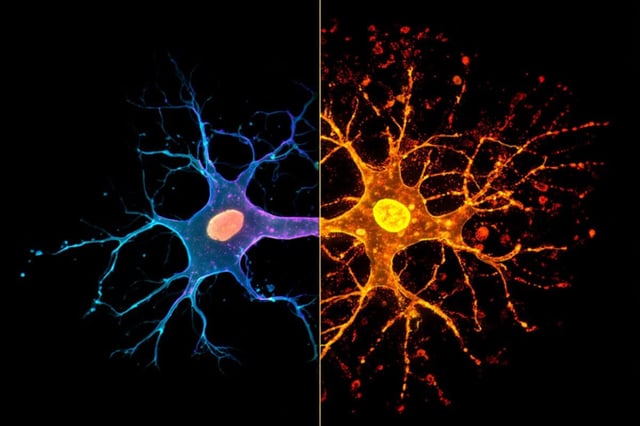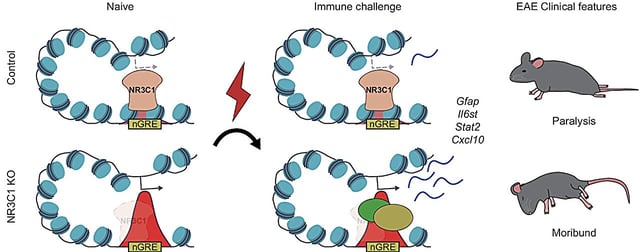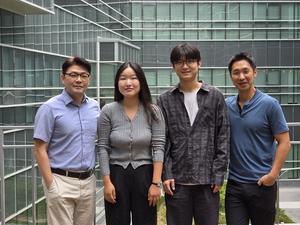Overview
- A KAIST-led team mapped astrocyte regulatory programs across development using 3D epigenome profiling, RNA sequencing, and chromatin accessibility analyses.
- Among 55 stage-specific transcription factors, NR3C1 was uniquely active in a brief early-postnatal window that established long-term immune restraint.
- Early depletion of NR3C1 kept immune regulatory elements open, priming excessive gene activation in response to inflammatory cues in adulthood.
- Astrocyte-specific NR3C1 loss did not disrupt normal development but worsened disease in an adult experimental autoimmune encephalomyelitis model.
- Researchers connect the mechanism to potential risk pathways for neuroinflammatory and degenerative disorders, while emphasizing that the evidence is preclinical in mice.


